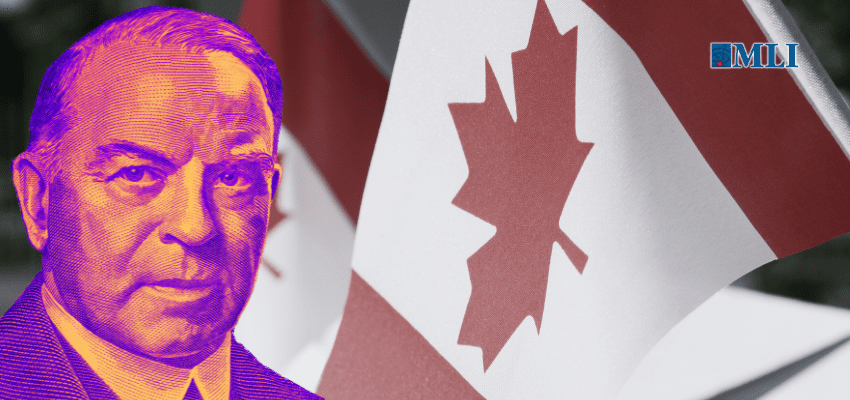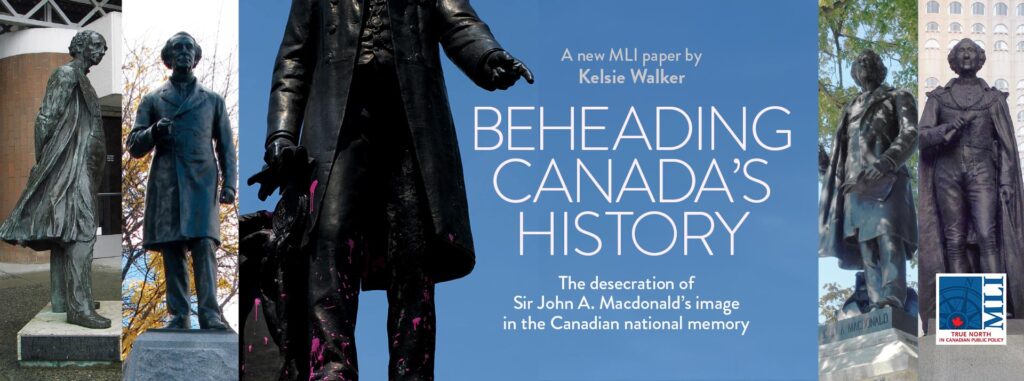This article originally appeared in The Hub.
By Christopher Dummitt, December 17, 2024
Canada’s most successful—and oddest—prime minister was born on this day in 1874. William Lyon Mackenzie King enjoyed the kind of political longevity that seems impossible today. Yet the skills he demonstrated, the political party he fashioned, and the way he governed are still a template for how to manage this country.
One of the most striking aspects of anniversaries like King’s birth is the way they expose the shocking proximity of the past to our present. A life begun in 1874 both is and is not long ago.
Our current prime minister’s father, Pierre Elliott Trudeau, grew up in the era of Mackenzie King. As a student, the elder Trudeau resented King’s conscriptionist wartime policies. King himself links us to an even earlier era. King’s main rival for the Liberal leadership in 1919 was William S. Fielding who had first come into politics as Nova Scotian premier in the 1880s. That is, King’s rival was someone who had governed in the era of Sir John A. Macdonald, the man more responsible than any other for Canada’s confederation. That wizened old leader had entered politics in the aftermath of the rebellions of 1837 and 1838 fighting against Mackenzie King’s grandfather, the elder William Lyon Mackenzie. In Macdonald’s early career, he himself would have come into a public life that was filled by those who had fought in the War of 1812 and the Napoleonic Wars. Those men in turn would have entered their professional lives surrounded by those who had helped conquer New France.
From Trudeau fils to Trudeau the Elder through Mackenzie King to Sir John A. Macdonald to Napoleon and back all the way to the Conquest of New France. Our own era is only a handful of lifetimes—and remembered childhood stories—away from Canada’s colonial foundations.
Yet, for all of this proximity, the past has never felt so far away. We live in a solipsistic world that is usually oblivious to the reality of our ancestors and the problems of the nation are not seen as our own.
Mackenzie King governed for more than 21 years. At the end of the Great War, King took over a Liberal Party trying to heal from the wounds of the 1917 conscription crisis. At the leadership convention that followed Wilfrid Laurier’s death, King was able to win over enough delegates—representing himself as Laurier’s heir and someone who had answers to the then-pressing questions of social chaos: labour revolt and class politics in a world where the Bolshevik Revolution was current affairs.
King held on to power for nine years (except for a blip in 1926) until the early months of the Great Depression. If King lived in our own age, he would have been forced to resign after losing power to R. B. Bennett in 1930. Yet King managed to hang onto the Liberal leadership even while facing a corruption scandal. In the 1935 election, King regained power (with fewer votes than his losing total from 1930) in a divided electorate where new third and fourth parties syphoned off the vote. From that point onward, for the next 13 years, King tenaciously and skilfully clung to power.
How did he do it? He was both obsequious and brutal, flattering and backstabbing. He managed his cabinet like no other, allowing an incredible amount of independence and leadership in some areas while insisting on total control in others. As his biographer H. Blair Neatby once wrote he didn’t know much about Quebec but he knew one big thing: it needed to be listened to.
In the Second World War he fought again and again to keep the Liberal Party together. The nation and the Liberal Party had come apart a generation earlier and King was determined it wouldn’t happen under him. In the first instance, King opted for appeasement. Well into the autumn of 1939—long after it was publicly acceptable—King hoped for a deal with Hitler’s Germany. Yet, to give King his credit, when the Nazis conquered most of Europe in the spring of 1940 he realised that moment had passed. The Liberals reoriented the government to fighting a total war effort.
Even still, he didn’t want to impose conscription. He had promised Quebec he wouldn’t. A national plebiscite in 1942 gave him the cover to break that promise, and still he held on. In the autumn of 1944, when his defence minister insisted that enlistment wasn’t keeping up with casualties and that Canada needed more troops, King still resisted. It was only several weeks later—at the final moment—that he caved to pressure.
Midway through the war, with support for the socialist Cooperative Commonwealth Federation on the rise, King put in motion the plans for a welfare state. A constitutional amendment allowed him to pass unemployment insurance in 1940. Then he planned for a generous Veterans Charter and the creation of Family Allowances. It was a brilliant move, appeasing the leftward surge in the populace. King’s push into the welfare state set the Canadian pattern: a liberal, middle-of-the-road approach that countered deficiencies of the market but was not stridently socialist.
Of course, there are the famous King oddities of the ghosts and the girls. Throughout King’s lifetime he mostly kept secret the fact that he was regularly communicating with mediums and spiritualists. This wasn’t some side passion but a lifetime commitment that took up his time at serious moments of national crisis. It doesn’t seem to have swayed him unduly. On several occasions, mediums tried to contort their messages from the beyond to give political advice. However gullible King may have been to believe in spiritualism in the first place, he brushed away these clumsy maneuvers. He was an odd duck, but also cunning and wily.
What should we make of King now in the second Trudeau era?
Clearly, the differences are stark. After nine years, the Canadian electorate—and his once-trusted cabinet colleagues—are fed up with our current prime minister. We saw this in full view yesterday. It’s almost impossible to imagine Trudeau hanging onto the leadership after an election loss in 2025.
Yet there’s also something to be said for the way the style of Canadian leadership has not changed. King maintained power because of his ability to discern what mattered. He continuously cut off rival political factions and movements, taking the radical critiques from the margins and bringing into power the most thoughtful proponents of all sides—especially those on his left fringe. The conservatism of Quebec kept him grounded in certain realities even as he tried to woo those frustrated with staid Liberal politics.
There’s a story about King out of power in the 1930s that helps you understand who he was. Late at night at the Rideau Club he recounted to three young leftish figures the parable of the ram and the sheep. In a fenced-in field with several gates, how does the ram know which direction to lead his flock? “That’s simple,” King said. The smart ram waits to see which direction the sheep are heading and then races around, gets in front, and triumphantly leads them through.
The story could also be a barometer of feelings for King’s leadership and for his politics in general. One of the people listening to King that night was lawyer and poet Frank Scott. Scott found the whole thing nauseating. He later wrote a famous Canadian political poem chastising exactly these features of King:
Let us raise up a temple
To the cult of mediocrity,
Do nothing by halves
Which can be done by quarters.
Yet another of King’s possible acolytes that night was Brooke Claxton. Claxton took a different path, rising to political prominence under King, first as minister of national health and then as defence minister before a too-early death. Sell-out or pragmatic compromise—ideological purity versus compromise—these were and still often are major tensions of a political life.
For Trudeau today, the bubbling impulses of ideas and radicalism that push toward the future are on the Right. Can the Liberals be open to this moment as previous incarnations of Liberals have been, notably the Chrétien/Martin Liberals of the 1990s? Or will it be too little, too late?
As the Liberals attempt to reverse their position on important files like immigration, housing and the economy and perhaps even carbon taxes, it’s not clear if they can move fast enough. What’s more, it’s unclear if they can convince enough Canadians that it’s the Liberal Party who are the ones to be trusted to fix the problems that this government largely created. For all the silliness of the ghosts and mediums, and all of the frustrations of those who saw him as characterless, these were the kinds of political flips King managed to land. It only really seems graceful in hindsight.







